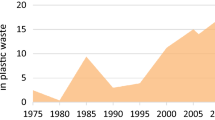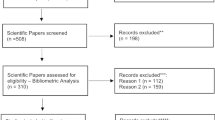Abstract
In this paper, we investigate the relationship between recycling policy options and recycling behavior to study the most effective methods of diverting post-consumer waste from landfills. We employ data from a unique, micro-data set collected from households in communities across Ontario, Canada. We estimate the relationships between several commonly recycled materials (newsprint, glass, plastics, aluminum cans, tin cans, cardboard, and toxic chemicals) and individual household characteristics, recycling program attributes, and garbage collection financing methods. We find that user fees on garbage collection have significant impacts on recycling levels for all materials except toxic chemicals, and mandatory recycling programs on particular items have significant effects on recycling for almost all materials. Limits on the amount of garbage that can be placed at the curb, and providing free units under user fee systems, however, generally have a negligible or detrimental impact on recycling.
Similar content being viewed by others
References
S. Atri T. Schellberg (1995) ArticleTitle‘Efficient Management of Household Solid Waste: A General Equilibrium Model’ Public Finance Quarterly 23 IssueID1 3–39
S. J. Callan J. M. Thomas (1997) ArticleTitle‘The Impact of State and Local Policies on the Recycling Effort’ Eastern Economic Journal 23 IssueID4 411–23
S. J. Callan J. M. Thomas (1999) ArticleTitle‘Adopting a Unit Pricing System for Municipal Solid Waste: Policy and Socio-Economic Determinants’ Environmental and Resource Economics 14 IssueID4 503–518
T. M. Dinan (1993) ArticleTitle‘Economic Efficiency Effects of Alternative Policies for Reducing Waste Disposal’ Journal of Environmental Economics and Management 25 IssueID3 242–256
Ferrara, I. (2000), ‘Household Solid Waste Production: The Impact of Waste Collection Charges through Pick-Up Frequency’, working paper.
I. Ferrara (2003) ArticleTitle‘Differential Provision of Solid Waste Collection Services in the Presence of Heterogeneous Households’ Environmental and Resource Economics 26 IssueID2 211–226
D. Fullerton T. C. Kinnaman (1995) ArticleTitle‘Garbage, Recycling, and Illicit Burning or Dumping’ Journal of Environmental Economics and Management 29 IssueID1 78–91
D. Fullerton T. C. Kinnaman (1996) ArticleTitle‘Household Responses to Pricing Garbage by the Bag’ American Economic Review 86 IssueID4 971–984
S. Hong R. M. Adams H. A. Love (1993) ArticleTitle‘An Economic Analysis of Household Recycling of Solid Wastes: The Case of Portland Oregon’ Journal of Environmental Economics and Management 25 IssueID2 136–146
S. Hong M. A. Richard (1999) ArticleTitle‘Household Responses to Price Incentives for Recycling: Some Further Evidence’ Land Economics 75 IssueID4 505–514
R. R. Jenkins (1993) The Economics of Solid Waste Reduction: The Impact of User Fees Edward Elgar Cheltenham, UK
R. R. Jenkins S. A. Martinez K. Palmer M. J. Podolsky (2003) ArticleTitle‘The Determinants of Household Recycling: A Material Specific Analysis of Recycling Program Features and Unit Pricing’ Journal of Environmental Economics and Management 45 IssueID2 294–318
V. Linderhof P. Kooreman M. Allers D. Wiersma (2001) ArticleTitle‘Weight-based Pricing in the Collection of Household Waste: the Oostzaan Case’ Resource and Energy Economics 23 IssueID4 359–371
T. C. Kinnaman D. Fullerton (2000) ArticleTitle‘Garbage and Recycling with Endogenous Local Policy’ Journal of Urban Economics 48 IssueID3 419–442
M. L. Miranda J. E. Aldy (1998) ArticleTitle‘Unit Pricing of Residential Municipal Waste: Lessons from Nine Case Study Communities’ Journal of Environmental Management 52 IssueID1 79–93
D. V. Nestor M. J. Podolsky (1998) ArticleTitle‘Assessing Incentive-based Environmental Policies for Reducing Household Waste Disposal’ Contemporary Economic Policy 16 IssueID4 401–411 Occurrence Handle10.1111/j.1465-7287.1998.tb00528.x
K. Palmer H. Sigman M. Walls (1997) ArticleTitle‘The Cost of Reducing Municipal Solid Waste’ Journal of Environmental Economics and Management 33 IssueID2 128–150
J. D. Reschovsky S. E. Stone (1994) ArticleTitle‘Market Incentives to Encourage Household Waste Recycling’ Journal of Policy Analysis and Management 13 IssueID1 120–139
C. Saltzman V. G. Duggal M. L. Williams (1993) ArticleTitle‘Income and Recycling Effort: A Maximization Problem’ Energy Economics 15 IssueID1 33–38
Skumatz, L. (1994), ‘Pay As You Throw: Variable Rate Incentives in Solid Waste Management’, in Proceedings of the Air and Waste Management Association International Symposium, pp. 277–288. Pittsburgh, Pennsylvania: Air and Waste Management Association.
T. Sterner H. Bartelings (1999) ArticleTitle‘Household Waste Management in a Swedish Municipality: Determinants of Waste Disposal, Recycling and Composting’ Environmental and Resource Economics 13 IssueID4 473–491
G. L. Van Houtven G. E. Morris (1999) ArticleTitle‘Household Behavior under Alternative Pay-As-You-Throw Systems for Solid Waste Disposal’ Land Economics 75 IssueID4 515–537
K. L. Wertz (1978) ArticleTitle‘Economic Factors Influencing Households’ Production of Refuse’ Journal of Environmental Economics and Management 2 IssueID3 263–272
Author information
Authors and Affiliations
Corresponding author
Additional information
JEL classification: D10, H23, Q28
Rights and permissions
About this article
Cite this article
Ferrara, I., Missios, P. Recycling and Waste Diversion Effectiveness: Evidence from Canada. Environ Resource Econ 30, 221–238 (2005). https://doi.org/10.1007/s10640-004-1518-z
Accepted:
Issue Date:
DOI: https://doi.org/10.1007/s10640-004-1518-z




